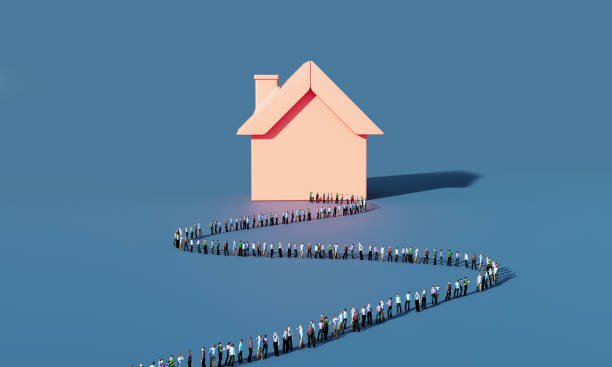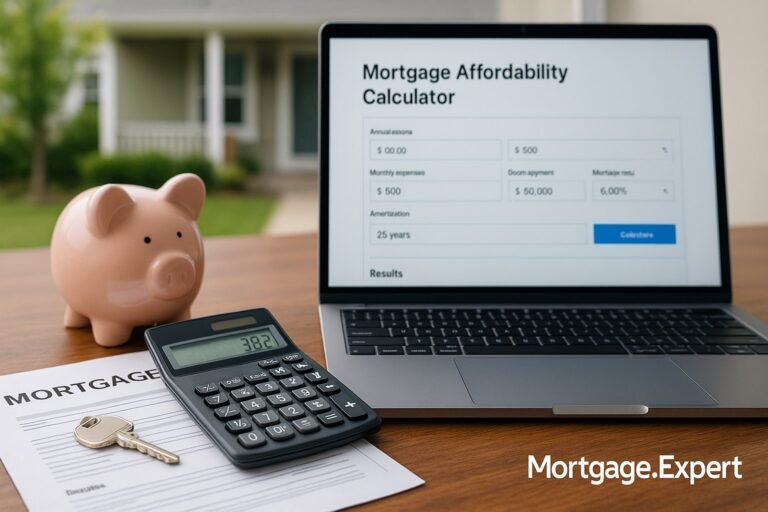
Your Ultimate First-Time Home Buyer Mortgage Guide in Canada (2025)
First-time buyer? Get expert guidance on mortgage options, interest rates, and what you need to qualify for your first home in Canada—without the overwhelm.
Ready to buy your first home in Canada but not sure where to start? This guide will help you understand how mortgages work, how much money you need, what the process looks like — and how to get the best deal as a first-time buyer.
What Makes You a First-Time Home Buyer in Canada?
The definition isn’t as simple as “never bought a home before.” According to the Canadian government, you’re considered a first-time homebuyer if you haven’t owned a home — or lived in a home owned by your spouse or common-law partner — in the past 4 years. That’s it.
Even if you’ve owned property before, you might still qualify under specific programs if you’ve rented for four years or recently ended a relationship.
The rules vary slightly depending on the province and the incentive you’re applying for — so when in doubt, ask your lender or mortgage broker.
Understanding Mortgages as a Beginner
Let’s break it down: a mortgage is simply a loan you take from a lender to buy a home. The home acts as collateral until you’ve fully paid off the loan.
Most Canadians pay off their mortgages over 25 or 30 years — not in one go, obviously — but through monthly (or bi-weekly) payments that cover both the borrowed amount (principal) and the interest.
Now, here’s where it gets interesting: there are two major ways a mortgage can be registered — standard charge or collateral charge — and that affects your ability to refinance later. Most people go with standard charge for flexibility, but your lender will walk you through the pros and cons of each.
Down Payments: How Much Do You Need to Buy a Home?
Down payments are probably the most talked-about part of homebuying — and they can feel intimidating. But here’s the truth: you don’t need to save 20% to buy your first home.
If the home you want is less than $500,000, you only need 5% of the purchase price as a down payment.
If it’s between $500,000 and $999,999, then you’ll need:
- 5% on the first $500,000
- 10% on the portion above that
Buying something over $1 million? Now you’ll need 20% minimum, no exceptions.
👉 Fun fact: Putting down less than 20% means you’ll need mortgage insurance — but that could actually help you access lower rates. More on that later.
Can You Borrow Your Down Payment?
Not exactly. Lenders want to see that the money comes from your own savings or is gifted by family. You’ll need to show your bank statements, and any large deposits will need to be explained.
For example, if your aunt sends you ₹5 lakh (or in this case, $5,000) a week before applying, you’ll be asked where it came from — and whether it’s a loan or a gift. Transparency is key.
Getting Pre-Approved: Why It Matters
Imagine falling in love with a house, making an offer, and then finding out the bank won’t approve your mortgage. That’s every buyer’s worst nightmare.
That’s why pre-approval is a smart first step. It’s not a guarantee, but it gives you a clear idea of:
- How much you can borrow
- What interest rate you might get
- How much your monthly payments will be
Once you’re pre-approved, you can shop with confidence, knowing your budget — and many sellers will take your offers more seriously.
Fixed vs Variable Mortgage Rates: Which One is Better?
This debate never gets old.
- Fixed-rate mortgages give you one interest rate for your entire term (typically 5 years). Your payments don’t change, and it’s great for peace of mind.
- Variable-rate mortgages change with the market. If rates drop, you could save money — but if they rise, your payment or amortization might increase.
Most first-time buyers prefer fixed rates for the predictability, especially when rates are high. But if you’re financially flexible and willing to take a bit of risk, variable can work in your favour when the market cools.
Understanding Mortgage Terms and Amortization
Let’s say you sign a 5-year fixed mortgage. That’s your term — the length of time your rate is locked in and the contract is valid. After the term ends, you either renew or refinance.
Amortization is different — it’s the full timeline of your loan, usually 25 or 30 years. A longer amortization means smaller monthly payments but more interest paid over time. A shorter one costs more per month but saves you big on interest.
Open vs Closed Mortgages: Do You Need Flexibility?
An open mortgage lets you pay off the entire loan — or large chunks of it — without penalty. But it usually comes with a higher interest rate.
A closed mortgage gives you better rates but limits how much extra you can pay each year (often 10% to 20% of the balance). Most first-time buyers go for closed mortgages because they offer the best of both worlds — structure and savings.
What is Mortgage Default Insurance, and Should You Care?
If you’re putting down less than 20%, mortgage insurance (also called CMHC insurance) is mandatory. But don’t panic — it’s not for you to worry about directly.
This insurance protects your lender if you default on your loan. The premium gets added to your mortgage amount, and surprisingly, it often gives you access to lower rates.
Insured mortgages are also easier to qualify for — you don’t need a perfect credit score, and lenders take on less risk.
What’s the Stress Test — and Why Is It So Stressful?
In Canada, everyone applying for a mortgage must pass a stress test. It doesn’t matter how low your actual rate is — the lender checks if you can still afford payments if the rate jumps by 2%.
For example, if your actual rate is 5%, you’ll be tested as if the rate were 7%. This helps ensure you don’t stretch yourself too thin, especially if interest rates rise in the future.
Working With a Bank vs a Mortgage Broker: Who Should You Trust?
Banks offer mortgages — but they can only sell you their own products.
Mortgage brokers, on the other hand, can compare rates and options from multiple lenders to find the best deal for your situation. They’re also more experienced with tricky files (like low credit scores or self-employment).
For first-time buyers, a mortgage broker can be a lifesaver — helping you understand your options and navigate the paperwork with less stress.
Let’s Talk About Closing Costs (Because They’re Real)
Most people save for a down payment but forget that closing costs are an entirely separate expense.
Here’s what you’ll likely need to cover:
- Legal fees: $1,500 to $3,000
- Land transfer tax: 0.5%–2.5% depending on province
- Appraisal fees: $300–$500
- Title insurance: $300
- PST on CMHC insurance (in Ontario, Quebec, etc.)
- Condo status certificate: Up to $100
- Home inspection: $500–$1,000
- Property tax adjustments: Depends on possession date
Set aside 1.5% to 4% of your home price for closing costs — lenders will expect you to prove that you have this money too.

Incentives and Rebates for First-Time Buyers (Don’t Miss These!)
You may be eligible for thousands in savings through federal and provincial programs:
| Program | Benefit |
|---|---|
| Home Buyers’ Tax Credit | Up to $1,500 in tax savings |
| RRSP Home Buyers’ Plan | Withdraw up to $60,000 from RRSP |
| Tax-Free First Home Savings Account (FHSA) | Save up to $40,000 tax-free |
| GST/HST New Housing Rebate | Partial refund of sales tax on new builds |
| Land Transfer Tax Rebates | Ontario: up to $4,000, BC: up to $8,000, PEI and Toronto have rebates too |
How Much Income Do You Need to Qualify for a Mortgage?
That depends on where you’re buying and how much you’re putting down. Here’s a very rough idea:
| Province | Home Price | 20% Down | Required Income |
|---|---|---|---|
| Ontario | $750,000 | $150,000 | ~$130,000 |
| Alberta | $450,000 | $90,000 | ~$75,000 |
| Quebec | $400,000 | $80,000 | ~$70,000 |
| BC | $850,000 | $170,000 | ~$140,000 |
📊 Use Our Mortgage Income Calculator
Not sure if your income can support your dream home? Run the numbers for your city and budget to estimate how much mortgage you can realistically qualify for.
🧮 Check My Mortgage EligibilityMini Verdict: Take the Leap, But Take It Smartly
Buying your first home is a big milestone. And yes, it can feel overwhelming. But with the right prep — understanding your mortgage options, getting pre-approved, budgeting for closing costs, and using available programs — it becomes a lot less scary.
Don’t chase the lowest rate. Chase the best overall mortgage for your goals.
And when you’re ready, talk to a qualified mortgage broker who can walk you through your options.
To know about First-time Home Buyer Loans In Canada. Click Here
Stuck with a Mortgage Decision?
Don’t stress — our team is here to help. Reach out for free, no-obligation guidance.
Contact the Experts



